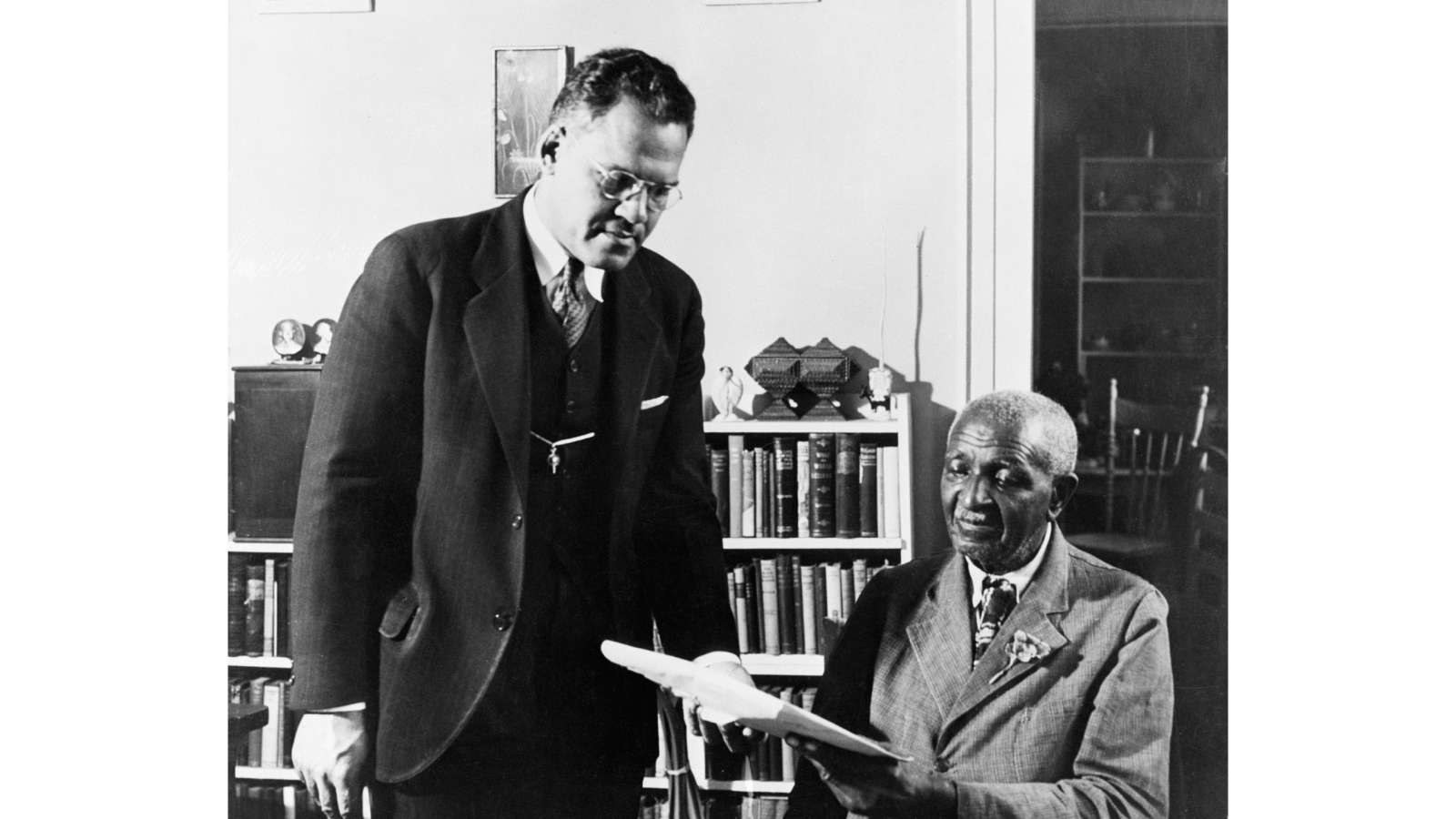Fueling the Future
Dr. Patterson’s impact on the world of higher education wasn’t confined to the Tuskegee campus. In 1944, he founded the United Negro College Fund and continued to work with that philanthropic organization long after he retired as Tuskegee’s president.
“We tried to present the needs of Black youth in the private Black colleges, as a matter of only local or restricted concern, but as something Americans of goodwill would take to heart,” Dr. Patterson wrote. “People could, we hoped, be united in an organizational relationship and we could then jointly solicit gifts from donors large and small all over the country.”
The United Negro College Fund continues to fund scholarships for African American students for 37 private, historically black colleges and universities. The organization has raised almost $5 billion for scholarships since its founding.
“Dr. Patterson should definitely be considered a giant of higher education, right next to other education pioneers of the day,” says Brian Bridges, vice president of research and member engagement of the United Negro College Fund.
“He is one of those unsung heroes of the 20th century whose contributions literally changed two fields for the better – the postsecondary education landscape and America’s World War II efforts,” Bridges says.
“I do not believe the United Negro College Fund would exist today, or if it did, it would not have the same lengthy and impactful legacy – one that spans over 75 years –without Dr. Patterson’s leadership.”
During his lifetime (1901-1988), Dr. Patterson was a champion for human rights, equality, and opportunity for all. His vision and courage continue to open doors.
“As much of a legacy that Uncle Fred left the world, he also left a legacy for our family,” says Heather Brown, Dr. Patterson’s niece. “For our family, we were so privileged to have known him and to have been influenced by him.”
Siblings Chris and Heather Brown both say their parents made sure they knew what a “big deal” Uncle Fred was, not only to their family, but to the world. That reality hit home one day when they opened the mail.
“I don’t know if I recognized just how fabulous he was until the invitation came from the White House,” Heather Brown says. “I thought to myself, ‘Maybe there’s really something here.’”
The White House invitation was for the Browns’ mother, Patricia, to attend a ceremony honoring their uncle with the Presidential Medal of Freedom, the nation’s highest civilian award. The honor is reserved for those who make an especially meritorious contribution to, among other things, significant public or private endeavors. To date only 630 individuals have been honored with the award.
Dr. Patterson received the Presidential Medal of Freedom from President Ronald Reagan in 1987 with the inscription … “by his inspiring example of personal excellence and unselfish dedication, he has taught the nation that, in this land of freedom, no mind should go to waste.”
Charting His Own Course
Born in Washington, D.C., Dr. Patterson attended Prairie View Normal School where he met Dr. Edward B. Evans, who also graduated from Iowa State and the College of Veterinary Medicine in 1918.
Dr. Evans became a mentor to Dr. Patterson and encouraged him to enroll at Iowa State to earn a veterinary degree. Even though Dr. Patterson was the only African American in the school during his tenure, he wrote years later that his experience in Ames was, for the most part, a positive one.
“In the veterinary program, I did not feel odd being a part of the group of students working in the veterinary clinic although I was the only Black person there,” Dr. Patterson wrote. “The absence of animosity encouraged me to see veterinary medicine as a field in which I could practice without being hampered by the racial stereotypes and obstacles that would confront me as a medical doctor, for example. I found the teachers of Iowa State helpful whenever I approached them. Educationally, it was a fine experience.”
His journey to his degree was difficult at times, however. He lived in a boarding house in downtown Ames while working at both a sorority house on campus and at a downtown hotel.
“I learned a lesson with regard to race that I never forgot – how people feel about you reflects the way you permit yourself to be treated. If you permit yourself to be treated differently, you are condemned to an unequal relationship,” he wrote.
Dr. Patterson’s association with his alma mater didn’t end with his graduation. He returned to campus in 1970 to deliver the keynote address for the dedication of Carver Hall, named in honor of his Tuskegee colleague and fellow Iowa State graduate.
He received countless honorary degrees and awards, including Iowa State’s Distinguished Alumni Award in 1980.
A Living Legacy
The Frederick Douglass Patterson Research Institute was established in 1996 by the United Negro College Fund. In honor of its namesake, the institute focuses on the education status of African Americans. On the Tuskegee campus there is a building and a street named after Dr. Patterson.
On the centennial anniversary of his graduation from the Iowa State University College of Veterinary Medicine, a year-long celebration has been planned by Dr. Patterson’s home college. Guest lectures and featured speakers at the college events – including graduation – have been planned.
Family members, including siblings Chris and Heather Brown, attended Iowa State’s homecoming activities in 2022 where Dr. Patterson was honored with the Stange Award, the College of Veterinary Medicine’s highest alumni honor.
“In honoring our uncle’s legacy, you are honoring our family,” Heather Brown says. “He was a wonderful example for all of us and a wonderful human being.”
The United Negro College Fund’s Brian Bridges goes further.
“Dr. Patterson’s accomplishments and his dedication to providing educational opportunities to disenfranchised populations, particularly African Americans, make him a figure worthy of celebration in American history,” Bridges says.
